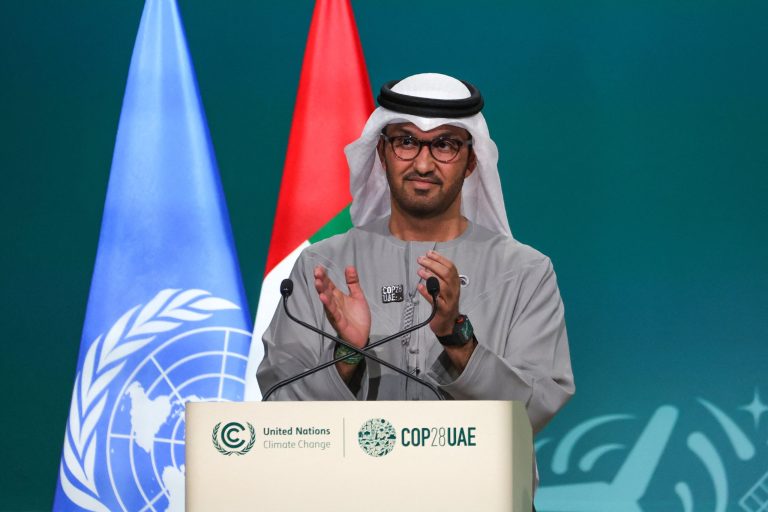Dubai – The COP28 UN Climate Summit in Dubai, United Arab Emirates, ended on Wednesday (13) with a final document in favor of an energy “transition” to allow the phaseout of fossil fuels. This transition should be accelerated “in this critical decade,” says the final text. The goal is ending net emissions by 2050 in line with the objectives set in the 2015 Paris Agreement. The COP28’s final declaration replaced the term “eliminating” fossil fuels, though.
“We have the basis to make transformational change,” said COP28 president Sultan Al Jaber (pictured), drawing applauses. The countries ran past a deadline to finish the deal.
Eight years after the Paris Agreement, the international community says that a preparation is required to abandon the energy sources that allowed the largest economic growth in history.
Reasons for optimism
“The era of fossil fuels must end – and it must end with justice and equity,” said UN Secretary-General António Guterres. The fiercely negotiated text ask the parties to contribute to a list of climate actions, “based on their national sustained circumstances.” The document calls for “tripling renewable energy capacity” and “doubling energy efficiency” by 2030. The transition should occur “in a just, orderly and equitable manner.”
Nearly 80% of the greenhouse gas emissions are caused by oil, gas, and coal. But these fuels also account for 80% of the energy the planet consumes daily. The target is 2050, but the term “transition away” doesn’t make it clear if the countries should have completely abandoned the fossil energy sources by then.
Dissenting voices
The atmosphere in the convention center in Dubai was one of tiredness and satisfaction at the end of the summit, but dissenting voices still attended.
“It is fundamental that developed countries take the lead in transitioning away from fossil fuels and ensure the necessary means for developing countries,” said Brazil’s Environment and Climate Change Minister Marina Silva, an appeal that was supported by China.
The text represents a “step forward but far more action is needed,” said the Alliance of Small Island States, which are threatened by the sea level rise.
COP28, which was attended by over 80,000 delegates in its 13 days, started with good news on November 30, when countries approved following a one-year negotiation the loss and damage fund to support the countries most affected by climate change.
Despite all promises, the world has increased its greenhouse gas emissions. Scientists alert that by 2030 the reduction pledges agreed upon in Dubai will account for just one third of the sacrifice needed. The planet has experienced in 2023 its hottest year ever recorded, researchers say.
*With information from AFP – reproduction prohibited
Translated by Guilherme Miranda




